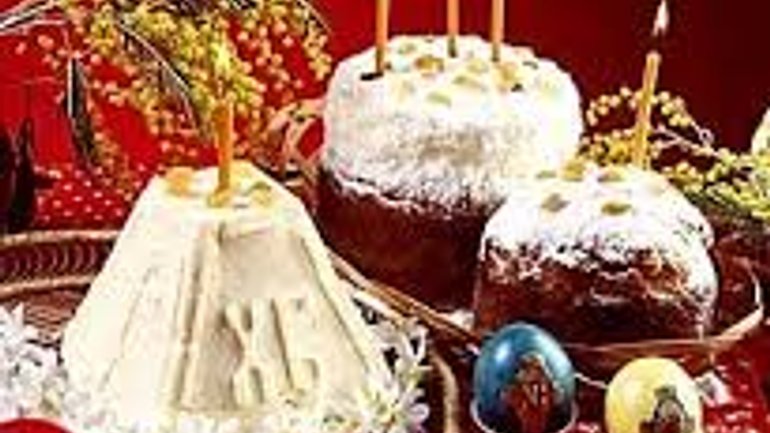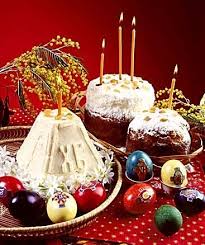Today is Easter According to Gregorian and Armenian calendar

 27 March of this year falls on Paschal Sunday according to Armenian and Gregorian calendar. “The three-day Holy Passion and Resurrection shine as the culmination of the liturgical year. It is through the Paschal mystery of the blessed Passion that Christ redeemed people and perfectly glorified God by destroying our death by his death and his resurrection turning our lives,” reads the Roman Missal.
27 March of this year falls on Paschal Sunday according to Armenian and Gregorian calendar. “The three-day Holy Passion and Resurrection shine as the culmination of the liturgical year. It is through the Paschal mystery of the blessed Passion that Christ redeemed people and perfectly glorified God by destroying our death by his death and his resurrection turning our lives,” reads the Roman Missal.
According to Latin rite, it is preceded by the Paschal Triduum. On Holy Thursday all the Church community meets at the solemn Eucharist of the Lord's Supper. This God’s service is a special memorial of the Last Supper of Jesus with the Apostles, whereat the Lord has instituted the sacraments of priesthood and Eucharist.
On Holy Thursday the ritual of washing feet s performed. This action was always performed by slaves or servants. At the Last Supper Jesus washed the feet of his own apostles, thereby teaching students the commandment of love of one’s neighbor. On the same day the tradition of offering donations to the poor and miserable emerged.
All the Liturgy of the Presanctified Gifts of Good Friday is dramatic. It begins in silence, without singing, with bare altar. The priest who comes in procession to the altar, falls face down before it and remain in this position for a few minutes. This is a sign of the state of our first parents after original sin and the sign of suffering and labor of the Church. On this day, the Gospel of the Passion of Christ is read.
On Good Friday Jesus Christ, the Redeemer of the world is praised. The external expression of praise of the Lord is glorification of the Savior sign – the cross. It is officially brought into the temple to be worshipped by faithful. In the later tradition of the Church there was the custom to stage on this day in churches the scenery of the Sepulcher, where cross or Blessed Gifts were hidden.
Holy Saturday is a day of the Holy and Great Sabbath. Eucharist is not celebrated this day. The whole Church is preparing for Paschal night. Also on this day the food that believers will eat at the Paschal breakfast is sanctified.
The Pascha takes honorable place in the liturgical year. On Paschal night the whole Church is going to special worship – the Paschal Vigil. Christians celebrate the Pascha like Jewish Passover, but it is not an event of the Exodus of Israel from Egyptian bondage and the crossing of the Red Sea is in the center, but the transition of Jesus Christ from death to resurrection.
After the Paschal Vigil at dawn or morning before the Paschal Divine Liturgy the faithful follow in the procession around the church. During the walk they celebrate the Resurrection with songs, calling the world to join the Paschal joy of the Church. The day of Pascha is the most joyous day of the year.
The Church celebrates Pascha for fifty days – starting from the Paschal night until celebration of the Descent of the Holy Spirit. This time period is called Paschal or Pentecost time (in the name of the holiday Descent of the Holy Spirit). Since the Day of Resurrection the Paschal Octave continues, being also a tribute to the Ancient Jewish tradition, when major feasts of the year were celebrated for eight days.
The date of Paschal celebration was defined at the First Ecumenical Council of Nicaea (325). According to the resolution of the Council, all Christians should celebrate Pascha on the same day. The Council determined this day as Sunday afternoon, after the first full of the moon after the vernal equinox. If so happens that Jewish Passover also falls on this day, the celebration of Pascha shall be transferred to the next Sunday. From IV century a special Paschal calendar was composed, which recorded the dates of Pascha for several decades to come.
In 1582 the Roman Church in Pope Gregory’s XIII tenure reformed the old calendar, which was not consistent with the natural. For that reason, a new paschal calendar was introduced. According to Gregorian calendar the spring starts thirteen days ahead of Julian, causing a difference in the dates of Paschal celebrations. It also happens that in the Latin Church the Pascha falls on the Jewish Passover, and sometimes even earlier. Western Protestants and a part of the Greek Catholics celebrate Pascha together with Roman Catholics. There are years when all Christians celebrate Easter together, as it was in 2014 and will be in 2017. On the contrary, once every 4-5 years the difference in the calendar makes 4 or 5 weeks – as it will be the next year of 2016.
Traditionally, on the day of Resurrection of Christ the Pope sends a traditional message and blessing “Urbi et Orbi” (“to the City and to the World”) to his flock in dozens of languages of the world









